#schengen zone
Photo

The new Schengen Zone borders:
100 notes
·
View notes
Text
The lunacy of the Israeli atrocities coverup
Prof Ghassan Abu-Sitta, a plastic and reconstructive surgeon was due to speak about the war to the French parliament’s upper house on Saturday. However, after arriving at Charles de Gaulle airport north of Paris on a morning flight from London, he was informed by French authorities that Germany had enforced a Schengen-wide ban on his entry to Europe.
Abu-Sitta said he had no knowledge that German authorities, who had previously refused his entry to Berlin in April, had put an administrative visa ban on him for a year, meaning he was banned from entering any Schengen country.
“What I find most difficult to accept is this complete criminalisation,” Abu-Sitta said on Sunday, adding that he was previously told by authorities he would be unable to enter Germany for the month of April.
“I was put in a holding cell and marched in front of people at Charles de Gaulle with armed guards and then handed over to the staff in the plane, all so that I’m unable to give evidence,” he said.
Instead of taking part in a conference at the French senate to speak about Gaza, on invitation from Green party parliamentarians, Abu-Sitta was stripped of his possessions and taken to a holding cell. Before being deported to the UK, he was able to attend the conference via video on his lawyer’s phone from the detention centre.
#palestine#palestinians#gaza#genocide#israeli atrocities#israeli apartheid#israeli occupation#idf terrorists#iof terrorism#famine#torture#war crimes#free palestine#free gaza#justice#cover up#german complicity#germany#persecution#schengen zone#europe#censorship#al jazeera#humanitarian crisis#human rights#icc#icj#german weapons#france#green party
6 notes
·
View notes
Text
Austria to propose ban on violent Israeli settlers
Austrian authorities are considering imposing a travel ban on violent Israeli settlers, SchengenVisaInfo.com reports.
The decision follows the lead of France, Germany and the United States, which are discussing measures to address security concerns.
Foreign Minister Alexander Schallenberg said Austria prefers a single regulation for the entire EU, calling the aggressive behaviour of these settlers “totally unacceptable and irresponsible”.
The ongoing discussions in the EU that those involved in acts of violence against Palestinians will be banned from entering the Schengen zone is a gesture of solidarity with the victims and also sends a message that the EU does not approve of such actions, Vindobona reported.
Read more HERE
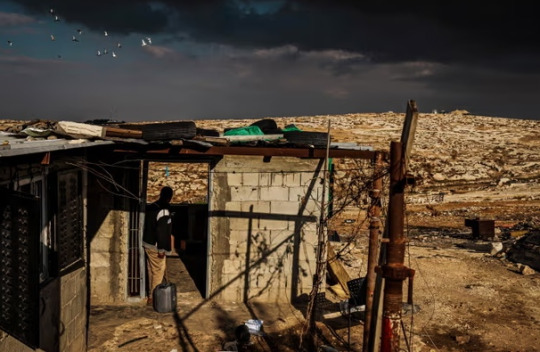
#world news#world politics#news#europe#european news#european union#austria#schengen visa#schengen zone#israel hamas war#israel palestine conflict#gaza#jews#hamas#israel news#hostages#migrants#migration#immigrants#immigration
4 notes
·
View notes
Text
It's kinda funny how Iceland is apart of the Schengen Area despite not having any land boarders shared with any of the countries apart of it due to being an island
#I get it's for air and water travel but still funny to me#Iceland#schengen area#schengen zone#why do i do these things#why do i do this
2 notes
·
View notes
Text
1 note
·
View note
Video
youtube
Poland Job Opportunities for Outside Country | Poland Visa Work Permit |...
Are you interested in exploring job opportunities in Poland as a foreigner? This video provides valuable information on work permits, visa requirements, and job opportunities in Poland for individuals from outside the country. Stay up to date with the latest Schengen Visa regulations for 2024 and make an informed decision about pursuing your career in Poland. Watch now to learn more!
0 notes
Text
How to stay in Europe beyond 90 days
Dreaming of European adventures but concerned about the 90-day Schengen Area limit? Hold onto your passport! Many European countries are now welcoming digital nomads with extended stay visas, allowing you to bypass the Schengen restrictions. In this installment of “Retire Young, Travel Smart: Europe Edition,” we unveil your pathway to a dream European retirement.
Here’s your guide to…

View On WordPress
#Croatia digital nomad visa#digital nomad visas#Europe visas#expat in Europe#Germany freelance visa#long-term travel Europe#retire in Europe#Schengen zone#Spain digital nomad visa
0 notes
Text
The Foodie’s Guide to the Schengen Zone: Must-Try Dishes Across Europe
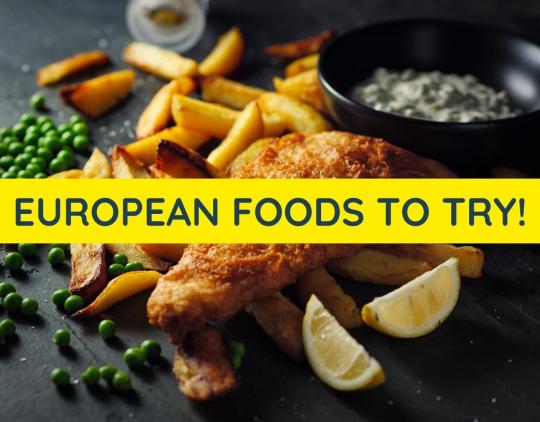
Embarking on a culinary journey through Europe is like opening a treasure chest of flavors, traditions, and unforgettable experiences. The Schengen Zone, with its rich tapestry of cultures, offers a diverse palette of dishes that are a must-try for any food lover. Let's take a gastronomic tour and discover the delicacies that make each country in this zone a foodie’s paradise.
The Essence of European Cuisine
European cuisine is an exquisite blend of history, tradition, and innovation. Each region has its unique culinary identity, shaped by geographical influences, historical events, and cultural exchanges. From the finesse of French cooking to the heartwarming comforts of Eastern European dishes, European cuisine is as diverse as it is delightful.
France: A Gourmet’s Paradise
Where Every Meal is an Art Form
Classic French Dishes: France is renowned for its culinary finesse, with iconic dishes like Coq au Vin, Bouillabaisse, and Ratatouille. Each region boasts its specialty, from the creamy cheeses of Normandy to the rich stews of Burgundy.
Patisserie and Boulangerie: French pastries and bread are in a league of their own. The delicate layers of a croissant, the sweet indulgence of éclairs, and the rustic charm of a freshly baked baguette are integral to the French dining experience.
Italy: More Than Just Pizza and Pasta
A Celebration of Simplicity and Flavor
Regional Delicacies: While pizza and pasta reign supreme, Italian cuisine offers much more. Risotto from the north, hearty Osso Buco from Lombardy, and fresh seafood along the coast showcase Italy's regional diversity.
Italian Gelato: No trip to Italy is complete without savoring authentic Italian gelato. Its rich texture and pure flavors make it a favorite among locals and tourists alike.
Spain: A Tapestry of Flavors
From Rustic Tapas to Elegant Seafood Dishes
Tapas Culture: Tapas are not just food; they’re a way of life. These small, flavorful dishes range from simple olives and cheeses to complex seafood and meat preparations.
Paella and More: Paella, a symbol of Spanish cuisine, varies from region to region. Gazpacho offers a refreshing treat, while Churros provide a sweet end to a meal.
Germany: Comfort Food at Its Best
Hearty Dishes to Warm the Soul
Robust Flavors: German cuisine is known for its hearty and robust flavors. Dishes like Schnitzel, Bratwurst, and Sauerbraten are often accompanied by sides of sauerkraut and dense bread.
Beer Culture: Germany’s beer culture complements its cuisine perfectly. Each region boasts its beer style, forming an integral part of the German culinary experience.
Scandinavian Delights
Fresh, Simple, and Elegant
Fresh Ingredients: Scandinavian cuisine is characterized by its simplicity and reliance on fresh, local ingredients. Dishes often feature seafood, such as Norwegian Salmon, or game meats, paired with fresh vegetables and berries.
Unique Offerings: Swedish Meatballs, Danish Smørrebrød (open sandwiches), and Finnish Karelian pasties are just a few examples of the unique and flavorful dishes found in Scandinavia.
The Richness of Eastern Europe
Eastern Europe is a region marked by a rich tapestry of cultures, each contributing to a diverse culinary landscape. From the hearty and comforting Polish pierogi to the complex flavors of Georgian khinkali, the region is a treasure trove of flavors. In countries like Hungary, the cuisine is known for its deep, robust flavors, as seen in their famous goulash.
Meanwhile, the coastal regions of Croatia and Bulgaria offer a bounty of seafood, marrying Mediterranean influences with Slavic traditions. Eastern European cuisine is characterized by its variety, influenced by its history of various empires and cross-cultural exchanges.
Street Food and Markets
Street food in Eastern Europe is an embodiment of the region's culinary spirit, combining convenience with rich tradition. In cities like Prague and Budapest, street vendors offer a plethora of options, ranging from Czech trdelník, a sweet pastry, to Hungarian lángos, a deep-fried flatbread.
These markets are not just food hubs but also cultural melting pots, where one can experience the vibrancy and communal spirit of Eastern European cities. Seasonal markets, especially during Christmas and Easter, offer a special glimpse into regional traditions and culinary practices.
Dietary Preferences and Modern Twists
As global trends influence dietary preferences, Eastern European cuisine is not immune to change. There's an increasing presence of vegetarian and vegan adaptations of traditional dishes.
For instance, meatless versions of the Serbian cevapi or the Romanian sarmale are gaining popularity. Chefs across the region are also experimenting with contemporary techniques and flavors, offering a new perspective on classic dishes. This blend of tradition and innovation is creating a unique culinary landscape that respects its roots while embracing modern tastes.
Food Tours and Culinary Experiences
For those looking to immerse themselves in the culinary richness of Eastern Europe, food tours offer an insightful and delicious way to explore the region. These tours often include visits to local markets, traditional eateries, and even cooking classes with local chefs.
For example, a food tour in Krakow might include sampling Polish kielbasa at a local market, followed by a cooking class on making pierogi. Such experiences provide a deeper understanding of the culture and traditions behind Eastern European cuisines, making them more than just a meal, but a journey through history and flavor.
Conclusion
A journey through the Schengen Zone is a feast for the senses, offering a kaleidoscope of flavors and experiences. From high-end dining to street food, every meal is an opportunity to explore and enjoy the essence of Europe.
Planning your culinary adventure in Europe begins with a hassle-free visa application process. GovAssist specializes in providing expert guidance for Schengen Visa applications, ensuring your paperwork is in order so you can focus on the delicious journey ahead.
Europe awaits with its rich culinary heritage and diverse flavors. Pack your appetite and embark on a foodie’s journey through the Schengen Zone, where every meal is a celebration and every dish tells a story.
0 notes
Text
Schengen Tourist Visa
Visit @visaporium to explore better career options for you
Contact Us -
📞 +91-9517-707-707
📍 Mohali, India
📧 [email protected]
🌐 https://www.visaporium.com
studyvisa #australiavisa #australiapermanentresidency #visaconsultantchandigarh #migrationservicesaustralia #indian #skillvisasouthaustralia #familyvisa #touristvisa #visatourist #travelvisa #studyvisa #visaconsultant #educationvisa #canada #australia #uk #usa #educationvisaconsultant #educationvisaexpert #educationvisaimmigration #immigration #overseaseducation #studyoverseas #studyabroad #Chandigarh #internationalstudents #studyinaustralia #schengen #touristvisa

#visaporium#visaservices#visaconsultants#spouse visa#student visa#tourist visa#tumblr#visa consultancy services#investor visa#visa services#schengen tourist visa#schengen visa#schengen zone#schengen area
0 notes
Text
Freedom of Movement: Myths and Realization
Continue reading Untitled

View On WordPress
0 notes
Photo
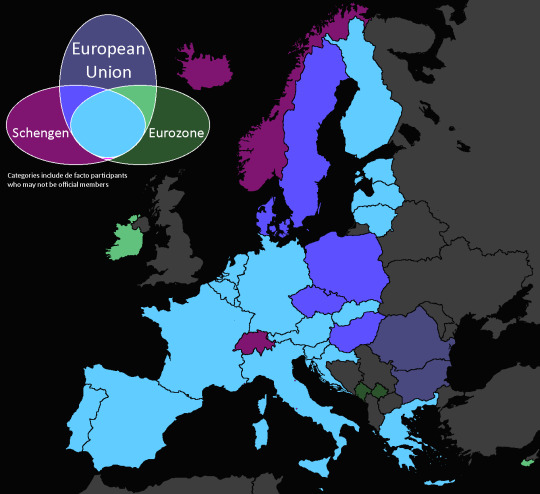
Overlap of Schengen & Eurozone
171 notes
·
View notes
Text
Paphos Cyprus
Paphos Castle – Hotels.com
I arrived in Paphos Cyprus, a short 1.5-hour flight from Amman, yesterday. It was time to depart Jordan and experience a new environment. I left Amman before Crown Prince Hussein’s June 1st wedding to Saudi architect Rajwa Alseif at Zahran Palace.
In preparation for royal wedding festivities and the arrival of famous guests and dignitaries, Amman was decorated with…

View On WordPress
#Aetokremnos Cyprus#Agia Kyriaki Chrysopolitissa#Agia Solomoni Catacombs#Agios Neophytos Monastery#Amman jordan#Amman Zahran Palace#Aphrodite Sculpture Paphos#Basilica of Panagia Limeniotissa#British Rule Cyprus#Byzantine Church of Agia Paraskevi#Church of Panagia Theoskepasti#Crown Prince Hussein#Crown Prince Hussein Fiancé Saudi Architect Rajwa Alseif#Cypriots#Cyprus Convention 1878#EU Schengen Zone#European Union#European Union Acquis#Forty Columns Fortress (Saranta Kolones)#Greece#Greek Cypriot State#Greek Cypriots#Holy Church of Panagia Theoskepasti Pafos#House of Aion#House of Dionysus#Jabal Amman#King Abdullah II#King Pygmalion#Kypros#Lebanon
1 note
·
View note
Text
Schengen exemptions for Bulgaria and Romania have more nominal than practical significance
EU member states reached an agreement in December to grant Bulgaria and Romania partial access to the bloc’s borderless Schengen zone, but a passport-free agreement on land borders is the subject of further discussion, EU Observer reports.
From 31 March, internal border controls will be removed at the two countries’ sea and air borders. However, the agreement to grant passport-free regime on land borders is a much more controversial and important decision.
The road to this stage has been very thorny and long. Romania and Bulgaria joined the EU more than 15 years ago, in 2007. The European Commission first recommended that they join Schengen in 2018. However, the move was blocked by member states in the EU Council.
European Commission President Ursula von der Leyen praised the decision in December that Austria, which had previously objected to the two countries joining Schengen, agreed to their “partial” accession.
Read more HERE

#world news#world politics#europe#news#european news#european union#eu politics#eu news#schengen visa#schengen area#schengen zone#schengen tourist visa#romania#bulgaria#ursula von der leyen#von der leyen
0 notes
Text
76 notes
·
View notes
Text
my brother and I had to explain the schengen zone to our parents today... my mom thought we'd theoretically have to do customs as americans/non eu citizens and I'm like "MOM there is NO ONE THERE" and she was like "???" and I was like "THERE IS NO ONE AT THE BORDER" and my brother was like "do europeans have to do customs when they travel from california to oregon?? no." my mom is not a dummy btw, she's actually an incredibly intelligent person but girl cmon what???? how do you not know this...
36 notes
·
View notes
Text
Putin's paranoia (updated)
Terror, delusion, and self-destruction
Timothy Snyder
Mar 29, 2024
A week ago, four men associated with Islamic State attacked civilians in a concert venue near Moscow known as Crocus City Hall. Islamic State (IS-K) claimed responsibility for the horrifying mass murder, and released videos recorded the terrorists' perspective (don't watch them). Russia has since apprehended four men, who seem to be the perpetrators.
Russia has been engaged with Islamic State for some time. Russia has been bombing Syria since 2015. Russia and Islamic State compete throughout Africa for resources. All four of the accused are Tajiks, a people subjected to discrimination inside Russia.
These are the facts, subject to further verification and interpretation -- and inherently unpredictable, as facts always are. What was entirely predictable (and predicted) was that, regardless of the facts, Putin and his propagandists would place the blame for the attack on Ukraine and the United States. On the internet (and in the Russian and Serbian press) this version is present.
It is not hard to see why. If Ukraine and the West are guilty, then Russian security services do not have to explain why they failed to stop Islamic terrorists from killing so many Russians, because Islamic terror vanishes from the story. And if Ukrainians are to blame, then this would seem to justify the war that Russia is prosecuting against Ukraine.

Aftermath of Russian ballistic missile strike on Kyiv, 25 March
Russian officials make a highly circumstantial argument: the terrorists' car was stopped near Bryansk, which is in western Russia, and so vaguely near Ukraine, which means that the four Tajiks in a Renault were intending to cross the Ukrainian border, which means that they had Ukrainian backers, which means that it was a Ukrainian operation, which means that the Americans were behind it. The reasoning here leaves something to be desired. And the series of associations rests on no factual basis.
The suspects were in a car near the west Russian city of Bryansk. This much seems to be true. The first version of the story was that they were headed for Belarus, which would make more sense, given the route. Anyone with local knowledge would make a still more telling point. Because of the special relationship between Russia and Belarus, the Russian-Belarusian border is porous. Once inside Belarus, it is relatively easy to pass into the European Union, because the Belarusian regime enables human smuggling into Lithuania and Poland. Four Tajiks in a Renault would have been, in this sense, welcome in Belarus. They would have had a decent chance to pay a smuggler to get them into the Schengen zone and thereby escape.
The idea that the suspects were headed for Ukraine seems to be entirely invented and is extremely implausible. As of this writing, none of the suspects seem to have said anything about Ukraine, despite the fact that they have been tortured, presumably with such a confession in mind. And the notion of a Ukrainian escape route makes no sense. The Russian-Ukrainian border is a place where Russian security forces are concentrated. It is a site of combat. It is the last place terrorists would want to go. Four Tajiks in a Renault would have needed some very, very high-level Russian protection to get anywhere near the Russian-Ukrainian border.
Russian propagandists have told the population that it was not Islamic State but Ukraine who is to blame. ISIS is just a "fake." The propagandists need not give reasons, and don't. In the press, one finds the wildest chains of association. Britain is to blame for the attack (goes one claim) because one of the suspects was once in Turkey and the Turkish president knows the head of British foreign intelligence.
Only Putin is permitted to set the theoretical tone for the argument for Ukrainian involvement, and yesterday (25 March) he gave that a shot. His version went like this: Ukrainians are Nazis; Nazis do bad things; a bad thing happened; therefore Ukraine is to blame. One does not have to be a logician to find the holes. They are disturbingly large. While it is true that Nazis do bad things, it does not follow that all bad things are done by Nazis.
And the factual premise is empirically false. One should not have to say this at this point of the war, but the Ukrainians are not the Nazis in this conflict. The Ukrainian far right has never done well in elections, and is far less prominent than in any European state you care to name, let alone the United States. Ukrainians have an active civil society, a vibrant press, multiple political parties, and freedom of speech. Ukraine's president won a free and fair election. He is also, incidentally, Jewish. The Ukrainian minister of defense, for that matter, is a Muslim. The commander-in-chief of the Ukrainian armed forces was born in Russia, where his parents still reside. This kind of political and social pluralism is unusual by any standards.
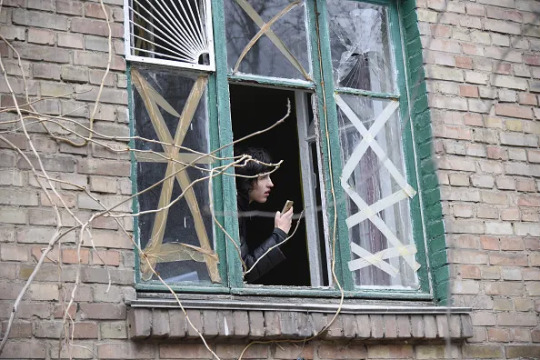
A Kyivan looks out the window after the 25 March Russian missile strike.
In Putin's version of the Russian language, of course, the word "Nazi" has no meaning beyond "what I wish for you to consider as the enemy." If we are going to pursue the question of who the fascists in this war are, however, it is worth knowing that Russia has none of what Ukraine has. Putin has never won anything like a plausible election to any office. His regime has crushed civil society, political parties (except his own), and the press. Putin runs a single-party state where the only principle of the single party is his personal status as its Leader. He rules at home by terror and prosecutes a genocidal war abroad, in Ukraine, with the help of Russian soldiers who ever more often openly identify as fascists. Putin himself espouses what is unmistakably a fascist ideology.
Calling the Ukrainians the Nazis while being the Nazis is not itself a problem within this system, since being the fascists involves living within a big lie. The challenge to such a system is that reality sometimes intervenes in a way that is hard to control -- as when Islamic State carries out an act of terror. This brings in a whole set of political and social realities that are usually suppressed in Russian propaganda: the bombing of Syrian civilians since 2015; the bloody resource wars in Africa; the oppression of Tajiks.
In Russia's system, it is not simply political convenience that adds the big lie of Ukrainian jihadism to the big lie of Ukrainian Nazism. It is the deeper need to make reality, or at least psychological reality, conform to the story told by the state. In the psychological project, more killing is necessary. Russians are engaged in the project of killing Ukrainians. Russians in Ukraine torture Ukrainians for being loyal to Ukraine, deport Ukrainian children for assimilation to Russia, and persecute and execute local elites who they regard as threats. Russians fire some combination of shells, glide bombs, drones, cruise missiles, and ballistic missiles at Ukraine every single day, for no reason that communicates with reality. Yesterday, for example, multiple Ukrainian cities were struck by fifty-seven Russian missiles and drones.
It is the killing itself that makes the lies true, in a psychological sense. Russian soldiers who have killed Ukrainians believe they are fighting "Nazis," whatever that means. And now Russian soldiers write "for Crocus" on he shells they fire at Ukrainians. Yesterday (25 March) Russia fired two ballistic missiles at central Kyiv, even as Russian authorities announced that the terrorist attack means that they are permitted to kill high officials of the Ukrainian state.
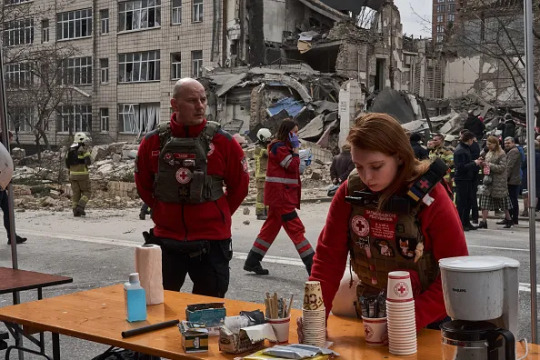
Rescue workers prepare to help victims after a Russian ballistic missile hit the Kyiv Academy of Decorative and Applied Arts and Design. Photo by Kostiantyn Liberov/Libkos/Getty Images)
Among Ukrainians, all of this generates a weary shrug. It has been a kind of Western parlor game these last two years to ascertain the "rational" motivations behind Russia's war of atrocity in Ukraine. Such a debate is attractive in the West, because if one can identify a Russian rationality one can then defend a policy of doing less, or doing nothing, to help Ukraine win the war. If Russia is rational, then surely some compromise can be found. This is a Russian leadership, however, that interprets the fact of American warnings about the attack as a reason to blame the United States for it: as the puppetmaster of Ukraine, which is itself the puppetmaster of Islamic State.
For Ukrainians, being identified as Islamists as well as Nazis is just one more detail in what is for them a war of self-defense and survival. And of course, as Ukrainians will remind you, for different audiences the Kremlin also characterizes Ukraine as the center of gay civilization, as an element of the Jewish international conspiracy, and as a Satanist cult. So (the memes are out there) Ukraine is now a gay Jewish Nazi Islamist Satanist regime.
The Kremlin goal of identifying Ukrainians as terrorists might matter in the war. It can be used as an excuse to continue, to mobilize, to commit new kinds of war crimes. This is one way this will certainly go. But it is not certain that this development will be stable.
It might matter to Russians that Putin's big lie about Ukraine is growing whiskers. Once forced into gay-Nazi-Jewish-Islamist-Satanist territory, Russians just might be reminded of the late Stalinist purges directed against supposed Zionist-Trotskyite-fascist-imperialist (etc.) conspiracies. Or, more simply, people inside the regime, backed into a corner by Putin's escalation of unreality, might just realize that the Ukrainian scenario makes no logistical sense, and lacks any evidentiary basis.
This can undermine Putin's authority, and the sense that his story is a useful one. Judging by yesterday's appearance, this is no longer the nimble post-truth Putin who is capable of changing out one lie for another as necessary, with a wink to the insider along the way. This now seems to be a Putin who actually believes what he says -- or, in the best case, lacks the creativity to react to events in the world. His speech yesterday was grim for everyone, including to Russians who would like to think that their leader is ahead of events.
Putin's Ukrainian theory could make Russia more vulnerable to terrorism. The Crocus City Hall attack was more likely because Putin has chosen to use his security apparatus against Ukraine and the opposition. It is typical of his priorities that, on the very day of the Crocus City Hall attack, the regime defined international LGBT organizations as "terrorist." When Putin publicly ridiculed the United States on 19 March for warning of an Islamic State attack, he was signaling to the security apparatus that this was not a real danger. In conflating Islamic State with Ukraine now, he is doing the same thing at a higher level. That cannot be helpful in the practical work of preventing another attack.
Nor can, surely, Putin’s idea that Islamic State takes orders from the Jewish president of a European state, and that its actors are nothing more than pawns of American masters. I am not going to claim any expert knowledge of how Islamic State works or its leaders think, but it seems like it would not be best practice to ignore it and insult it at the same time. Publicizing the photos of the tortured suspects, as Russia has done, almost seems like goading Islamic State.
And although the official Kremlin position is that Kyiv and Washington and London are to blame, Russians have reacted (to the attack, and presumably also to the photos) by treating migrants and minorities aggressively. Because Putin denies that Islamic State is the actor, he cannot tell Russians that Islamic State is one thing and Muslims in Tajiks in general are another. He has created the impression, instead, that Muslims and Tadjiks are the enemy because they work for the West.
26 notes
·
View notes